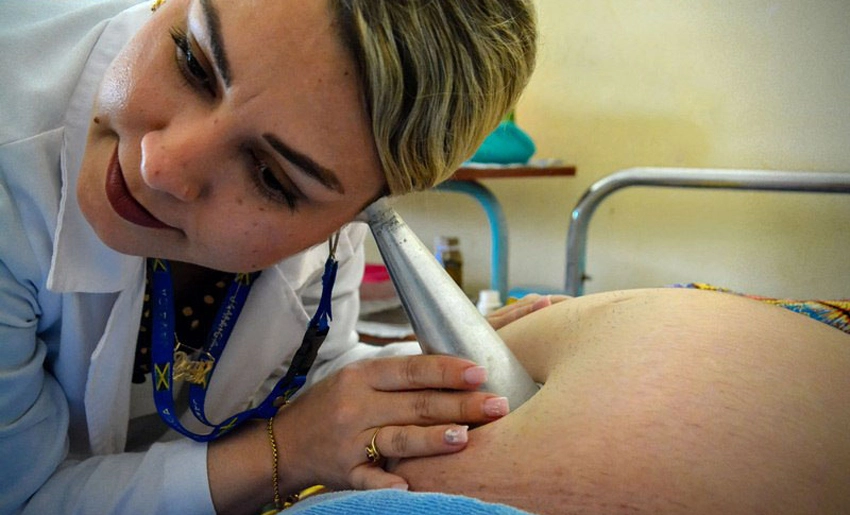In the province of Holguin, tireless work is being done to reverse serious complications that may arise during pregnancy or childbirth. Responding to the priorities of the Maternal and Child Care Program (PAMI).
At the Vladimir Ilich Lenin University General Hospital, home to Cuba’s largest maternity Ward. The most critical maternal cases are frequently discussed with officials from the General Directorate of Health. In order to coordinate actions between secondary and primary care to ensure a better response.
According to Dr. Sara Liz Ricardo Suárez, deputy director of Critical Maternal Care at the health institution, “one of the priorities of this hospital’s work is, without a doubt, PAMI. The infant mortality rate at this hospital and in this province is a decisive contribution to Cuba’s mortality rate.”
She also noted that between six and seven thousand children are born annually at Lenin Hospital and highlighted the well-structured system for critical maternal care.
In recent years, maternal morbidity has increased due to the presence of pathologies not related to pregnancy. While it used to be caused by issues such as infections, hemorrhages, or hypertensive conditions. Today we see a large number of women who become pregnant without considering compensating for their underlying conditions, which leads to serious complications.
A multidisciplinary team has been formed at the provincial level to care for them. In this regard, the Internal Medicine specialist explained that a team of professionals dedicated to critical maternal care has been designed and appointed by legal resolution.
“This issue is so important that the head of critical maternal care in the province is the General Director of Health, Dr. Julio Yamel Verdecia Reyes. Therefore, the director at the hospital is Dr. Amalia Pupo Zúñiga.”
“There is a team of intensive care specialists, surgeons, clinicians, nephrologists, urologists, psychologists, neurologists, neurosurgeons, orthopedic surgeons, and ear, nose, and throat specialists.
In other words, those in each specialty have been selected who, from a technical standpoint, have the best training and attitude to take on something like this. It’s very complex, so when a red code is activated because a mother is at high risk, even if no complication has yet occurred. When that patient goes to the critical care room, there is a team from the critical care room to assist her,” she concluded.
The maternity ward is working tirelessly to strengthen the Maternal and Child Care Program. The optimal age to conceive a pregnancy is between 20 and 35 years old. Although there are clear examples of women older and younger than this age who have successfully achieved this goal.
However, those planning a pregnancy who suffer from a chronic illness are urged to choose the right moment. Something to take into account that will improve their health.
With information from Infomed Holguin
- Installation of Photovoltaic Systems in Rural Communities in Holguin - 19 de January de 2026
- 39th City Salon Opens in Holguin - 19 de January de 2026
- Habanos Festival Among Cuba’s Most Important Tourism Events - 19 de January de 2026

